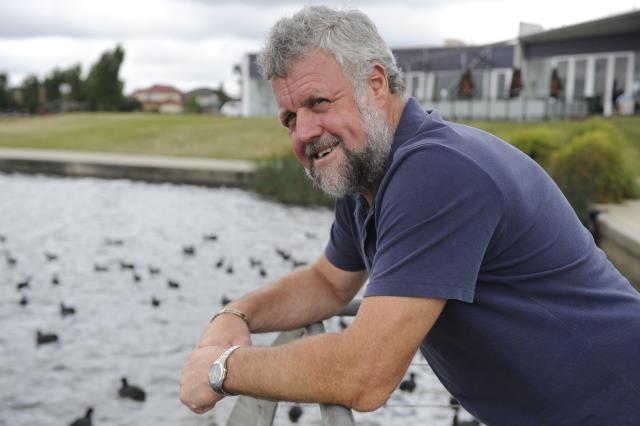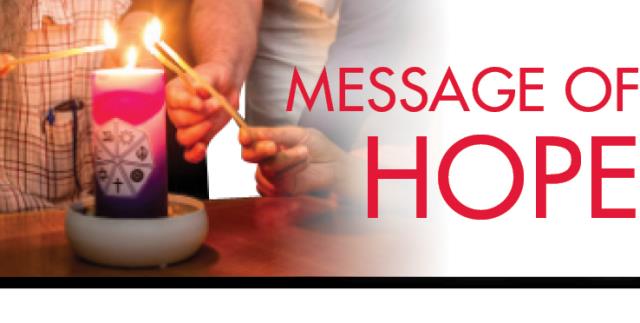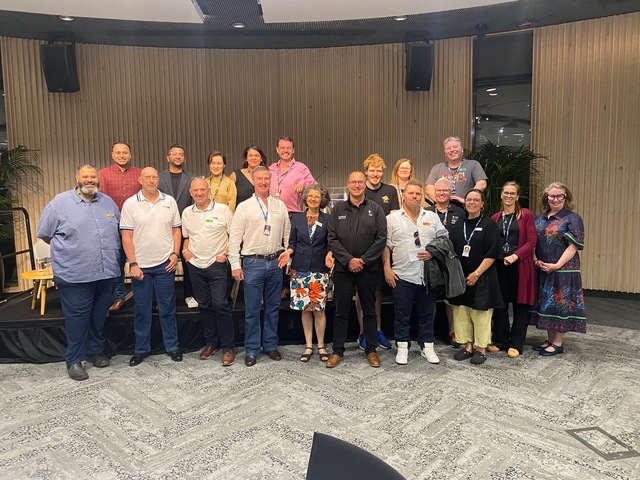Early intervention remains a key process, as a new study found that one in three men report using intimate partner violence in their lifetime.
A media release by the Australian Institute of Family Studies (AIFS) report, Ten to Men, found that 35 per cent of Australian men aged 18 to 65 years have used intimate partner violence in their lifetime.
It also estimated that 120,000 men nationally, each year, are starting to use it for the first time.
The project, an AIFS longitudinal study of boys and men, is the first national estimate of male intimate partner violence perpetration in Australia.
David Nugent, founder of Heavy M.E.T.A.L, said that as the numbers grow, so does awareness, but “one of the things that a lot of programs and services are not doing is that they are not empowering men to be better men”.
”They’re taking a position of judgement, and trying to push the point for the man to acknowledge that he’s a perpetrator of family violence – that does not empower men to want to change,” he said.
Heavy Men’s Education Towards Anger and Life has its core values rooted in early intervention, addressing behaviours, habits and emotions that have the potential to lead men to become part of the statistics.
There is no dismissing the certain facts and numbers, but Nugent is adamant that while there are facts, there are few to no support services that can properly address the root cause.
The AIFS report detailed that when it was first surveyed in 2013-2014, around one in four men reported ever having used intimate partner violence.
This has since increased to one in three men, with the same cohort as of 2022.
The director of AIFS, Liz Neville, said that the data set, which follows men over a ten-year period, “confirms the extent of the problem”.
“With an estimated 120,000 men starting to use intimate partner violence each year across Australia, we can see more clearly how delays in effective intervention can have devastating consequences.
“We hope these disturbing numbers provide impetus for further action by governments at all levels, underpinned by evidence,” she said.
Emotional-type abuse was the most common form of intimate partner violence, with 32 per cent of men in 2022 reporting they ever made an intimate partner feel “frightened or anxious”.
Nine per cent admitted ever “hitting, slapping, kicking, or otherwise physically hurting” an intimate partner when they were angry.
However, the study also found that high levels of social support and high levels of paternal affection both reduced the likelihood of men using intimate partner violence.
To Nugent, his goal, since the 20-plus years he began with the group, was to “answer why (statistics) doesn’t bring change”.
“It’s a good thing that they have these statistics, saying that they can own their behaviour, but what are we going to do about it?
“We want men to reach out for help before police get involved, before courts get involved, before child protection gets involved, before she says, I need to take an intervention order, before she feels scared,” he said.
Nugent said that the success Heavy M.E.T.A.L. sees is from the duration of the courses, where he is “holding on to men”, and allowing them that space to be open, to express themselves, their frustrations, worries, wrongs and everything in between, in a judgement-free place.
Vulnerability is also a big factor, where men, constricted by their own rules set in bygone years by a patriarchal society, are seeing themselves chained to dated characteristics of what a ‘true man’ is.
Nugent reflected that these notions and teachings were given to men since they were young, and that he still comes across the same messages.
“I hear it from older people, where those ideas about not crying, telling men not to cry, to not be a sook, to grow some balls, to be real men,” he said.
“What happens in those messages while men are growing up is that it layers shame, and that shame is what we don’t know how to deal with.”
Likewise, men who felt strongly that they had a quality relationship with a father or a father figure during childhood, marked with affection, were 48 per cent less likely to report ever having used intimate partner violence.
The opposite is severe, where men with moderate or severe depressive symptoms were 62 per cent more likely to use intimate partner violence by 2022, compared to men without these symptoms.
The AIFS program lead for Ten to Men, Dr Sean Martin, said that the data provides “a set of risk factors to help support the development of effective policies and programs for young men”.
Martin added that “depressive symptoms and a lack of social connection are not an excuse” and that “violence is always a choice”.
A present issue Nugent has found in men is that men tend not to speak of their feelings or share their emotional experiences, since there is a chance peers, including themselves, will find it awkward.
Communication responding styles are a key strategic implementation at Heavy M.E.T.A.L., where Nugent said it is essential when it comes to delivering understanding from all parties involved.
Spearheading the work he has been doing for over two decades, Nugent remains steadfast that those uncomfortable situations amongst men need to be addressed at earlier stages.
“There are many signs that men want to do this, there are men out there that are hurting, and they don’t want to be in that position,” he said.
“They want to be good husbands, good partners, friends, fathers, they want to be good role models.”







